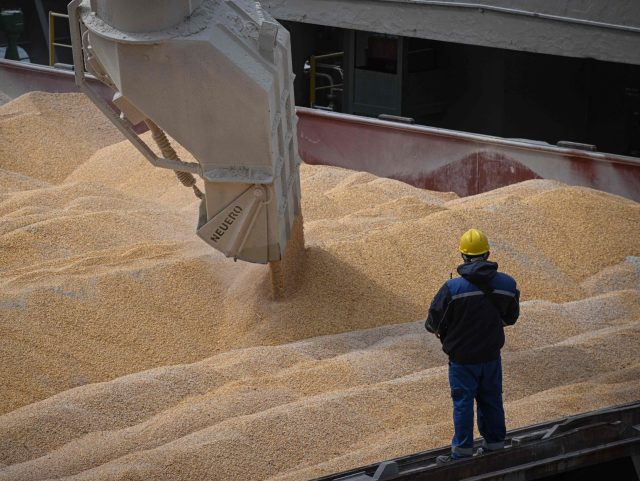Russia will lift its blockade of the Black Sea and once again allow grain to be exported from Ukraine once Western nations lift sanctions, the country’s Deputy Foreign Minister has said.
With millions of tons of grain stuck in Ukraine due to Russia blockading the Black Sea, Western powers have been formulating various plans and schemes to get food exports once again flowing out of Ukraine.
However, the Deputy Foreign Minister of Russia, Andrei Rudenko, has made clear the restriction of the food supply is a power play by Moscow, saying the flow of food so badly needed by the developing world will only resume once sanctions are lifted on Russia.
According to a report by Russian state news agency Interfax, Rudenko said that Moscow was “ready for dialogue” regarding allowing the export of food from Ukraine, but that an agreement on the issue could only be reached via concessions from the West.
“We have repeatedly commented on the matter [of grain exports] and said that a resolution of the food problem would require a comprehensive approach, including the lifting of sanctions imposed on Russian exports and financial transactions,” the agency reports Rudenko as saying, having also emphasised that Russia was supposedly ready to talk to anyone seeking “a peaceful resolution of all problems”.
“Russia is ready to provide the necessary humanitarian passage, as it is doing every day,” he went on to say.
Rudenko also noted that a resumption of exports would require “Ukraine’s demining of all ports where the ships are,” though The Times notes that it was actually Russia who laid the mines near such ports in the first place.
The publication also claimed that Italy had offered to send ships to demine Ukrainian ports a number of weeks back, but had their offer refused by Russian authorities.
Also mentioned by the Deputy Foreign Minister was a plan proposed by Lithuania and seemingly backed by the UK involving the formation of a naval alliance to escort merchant ships to and from Ukrainian ports.
While Lithuania has insisted that the plan involving de-mining and missile defence would not constitute a military mission, Rudenko said that the execution of such a plan would only serve to seriously escalate tensions.
“I believe that would seriously escalate the situation in the Black Sea region,” the Russian official said regarding the proposed plan, before emphasising that it was his belief that the UK had already confirmed that they were not planning on getting involved in the harebrained scheme.
Meanwhile, officials attending the globalist World Economic Forum conference in Davos have been wrestling with the problem of a coming seismic increase in world hunger as a result of the war in Ukraine, as well as other smaller problems, such as drought in India.
“We will have famines around the world,” said the World Food Programme’s David Beasley as officials bickered over the effect the EU’s heavy commitment to organic would have on the bloc’s food yield.
“Every one per cent increase in [world] hunger there’s a two per cent increase in migration — just think about that for a minute,” he continued, before noting that he was telling his “friends in Europe” that they needed to be mindful of what was happening in the global south, having previously warned that the EU was facing “Hell on Earth” in the form of another migrant crisis as a result of shortages.

COMMENTS
Please let us know if you're having issues with commenting.